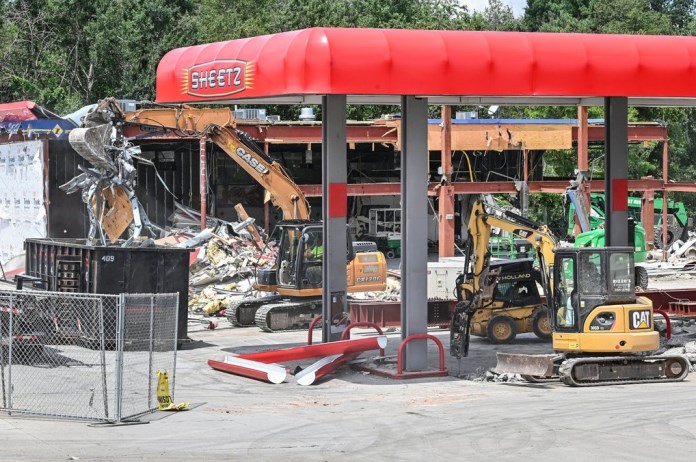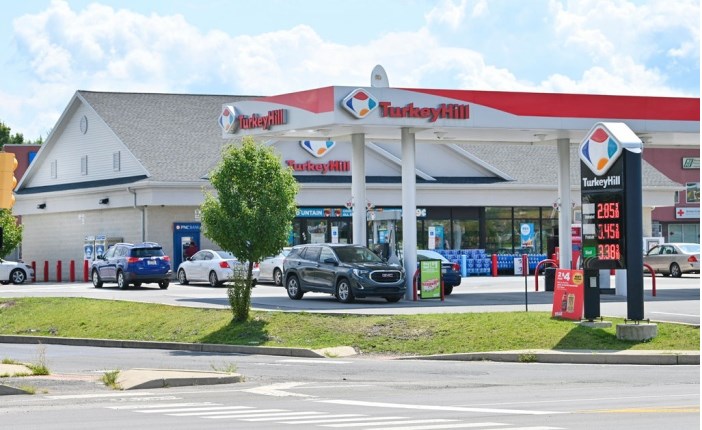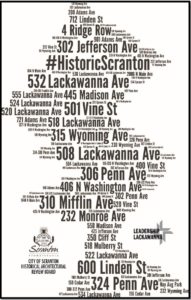
Wawa’s Shorti or Sheetz’s Shnack Wrap?
How you answer might tell people where you’re from, or at least where you prefer to get your gas and lunch to go.
The loyalty war between Pennsylvania’s dominating convenience stores
rages just south of Lackawanna and Luzerne counties. But the two never
waged battle here, and maybe they never will.
As Sheetz and the third, probably longest-standing soldier in the
area’s convenience wars, Turkey Hill, dump millions into fuel super
centers that also sell beer, hot made-to-order food as well as gas, it
begs the question why Wawa hasn’t dipped its toes in the market.
The privately owned chain with stores in six states, and more than 30,000 employees, seems resistant.
It tried once.
Wawa, headquartered outside Philadelphia, had a storefront in
Wilkes-Barre Twp., on Scott Street, that closed nearly 20 years ago. At
the time, Wawa spokeswoman Lori Bruce told The Citizens’ Voice, a
Times-Shamrock newspaper, the location wasn’t conducive to expansion,
and the store shut down after a decade in business.
The next closest Wawa is at Blakeslee Corners in Tobyhanna Twp.
Bruce did not answer requests for comment for this story, but one area
real estate broker suggests Wawa simply passed on an opportunity, and
Sheetz took it.
“I think that they just didn’t see — I’m not positive — but the
profitability of being up here,” said broker John Cognetti of Hinerfeld
Commercial Real Estate.
“Then Sheetz came in, so they figured they weren’t going to go head to head with Sheetz,” he said.
Sheetz and Wawa cohabit with each other in other parts of the state.
“I don’t think that we shy away from competition,” Sheetz Public
Relations Manager Nick Ruffner said. “We have friendly competition with a
large number of companies across our six-state footprint.”
Nationally, convenience stores tracked growth for nine steady years
starting in 2009, said Drew Mize, a vice president with the
Atlanta-based convenience store and logistics software company PDI.
Sheetz and Wawa are among the company’s clients.
The industry saw its first decline on a national level in 2018,
although Mize said fewer single-store owners were driving the drop in
stores. Notably, two companies did not follow the overall trend.
“Wawa and Sheetz are an anomaly,” he said. “They’re killing it and they’re going to continue to kill it.”
Nationally, individual transactions were down, however, industry sales
were up 9 percent, he said. That means fewer shoppers were spending more
on each trip and supports the notion that people are hitting the gas
station for more than just fuel.
They’re making other purchases at the same time.
Sheetz opens 15 to 20 new stores annually.
Last week, the company opened its 593rd in North Carolina.
In Northeast Pennsylvania, the company has been ripping down old stores
and building new ones at an aggressive pace, presumably in the wake of
Pennsylvania’s expanded liquor laws that opened the door for beer sales
at gas stations.
Not to be left out, Clarks Summit-based Convenient Food Mart, which
operates a few dozen locations in four Northeastern counties as well as
the upscale City Market & Cafe shops in Scranton, Wilkes-Barre and
the Back Mountain, has embraced easier access to beer and wine sales,
although few of its locations sell fuel.
More than 160 stores of Sheetz’s 275 in Pennsylvania stock beer, but
Ruffner said the store overhauls are simply part of the Sheetz model.
“Our philosophy has always been to put the Sheetz of today out of
business with the Sheetz of the future,” he said, explaining the company
replaces or dramatically remodels stores every 10 years or so.
That Sheetz of the future includes cutting-edge offerings like ATMs for
bitcoin, an alternative digital currency, and a full line of CBD
products behind the counter.
Though it seems one company is dominating the regional market, and on a
national level growth has declined, Mize said the segment probably
hasn’t reached capacity.
“I certainly don’t think we’re at build-out in the space,” he said.
The staple Turkey Hill could be part of that.
It’s ramped up its offerings with modernized stores and added beer and made-to-order food at some of them.
Also fueling growth, former parent company Kroger sold Turkey Hill to
the British EG Group in 2018 for $2.15 billion, and Cognetti said he
expects the new owner isn’t going to roll over.
“They’re looking to be more aggressive, I think in the whole state,” he said.
Contact the writer: joconnell@timesshamrock.com; 570-348-9131; @jon_oc on Twitter






